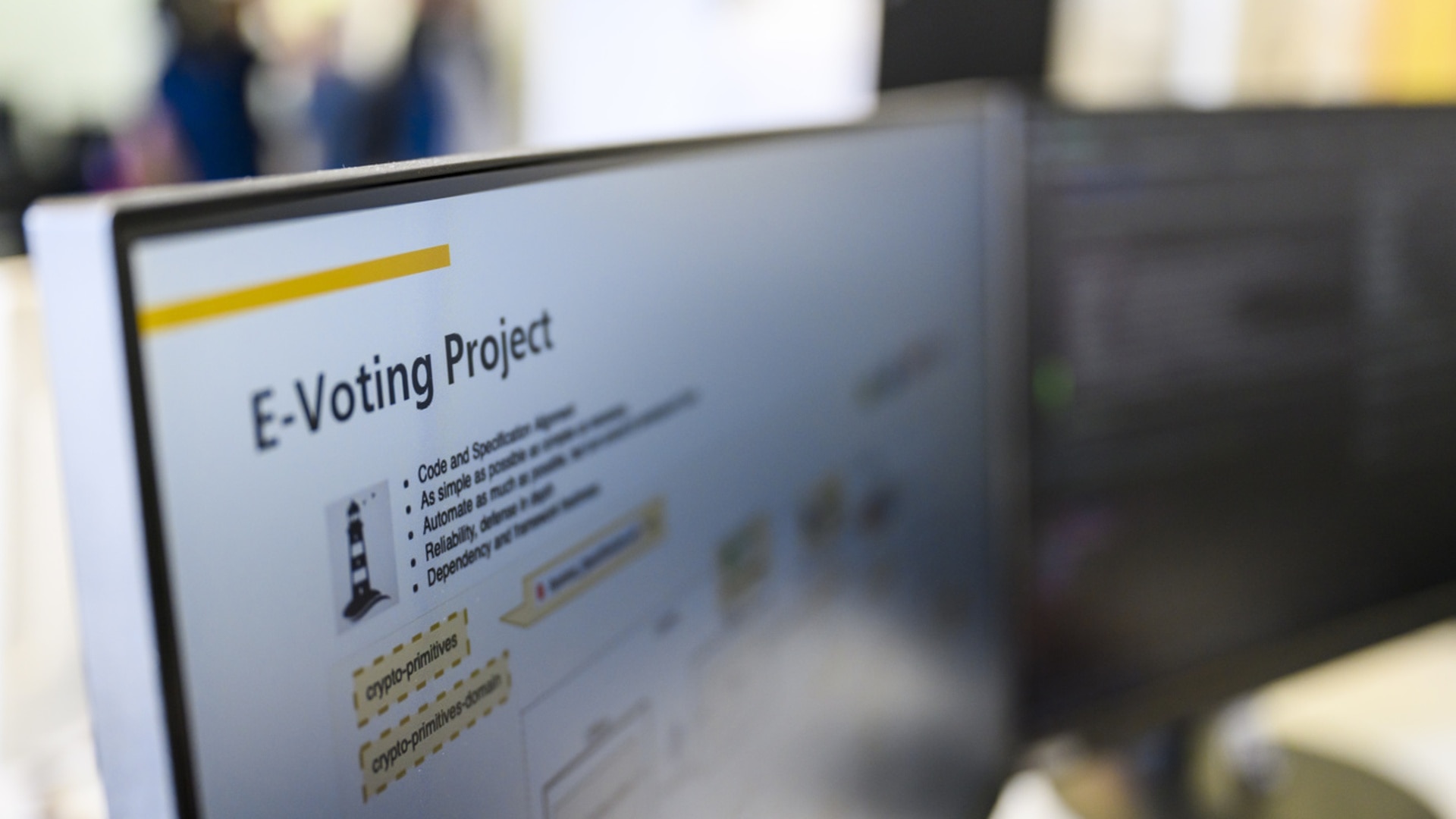The Federal Council has authorised the cantons of Basel City, St Gallen and Thurgau to trial electronic voting in the October elections for a limited number of voters.
Swiss voters abroad who are registered in any of the three cantons will be able to use the online voting method to elect members to the House of Representatives, a press release on Wednesday said.
Canton Basel City will also allow Swiss citizens with a disability to vote online, and in canton St Gallen a limited number of voters from municipalities that offer e-voting can also register. In all, the cantons are asking for around 65,000 voters to be authorised for e-voting in the national elections – around 1.2% of the Swiss electorate.
The decision “allows three cantons to gain further experience using Swiss Post’s e-voting system,” writes the government. The Federal Chancellery has commissioned independent experts to review the e-voting system on a regular basis.
The decision comes after the same three cantons were allowed to use the Swiss postal service’s new e-voting system for the June 18 national votes. The cantons and Federal Chancellery viewed the first use of the new system in a popular vote as a success. Ongoing debate
The last time e-voting was used in federal elections was in 2015, when it was authorised for 132,134 voters in the cantons of Geneva, Lucerne, Basel City and Neuchâtel.
A pilot project to allow e-voting in some cantons was abandoned in 2019 amid technical and security concerns, much to the dismay of the Swiss diaspora around the world who argue that the lack of e-voting reduces voter turnout and is a threat to democracy.



Would be funny if it runs on windows with hardwares that isn’t privacy hardened, or something.
It’s a website.
What stops a bad actor from getting involved? This is a terrible idea. I mean I can literally just look over the voter’s shoulder, not to mention the million other ways that this doesn’t work.
A bad actor could have invisible root access to the PC and all network traffic but still couldn’t alter a vote cause they don’t know the codes printed on the voting card that was sent by mail.
Looking over the shoulder is an issue with all forms of voting from home.
Probably runs on excatly such systems.
Yes it does.
What a nightmare